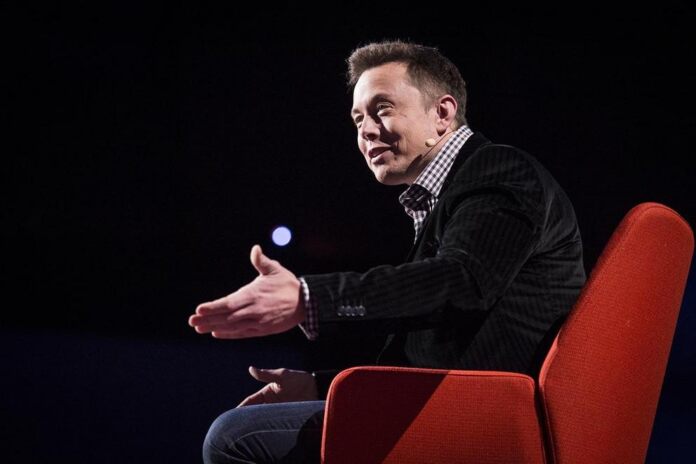Multimodal generative artificial intelligence is no longer the future, it is the here and now. OpenAI with GPT-4 and Microsoft have mainstreamed generative AI models in recent months. Companies like Google and others are also on a similar path, attempting to catch up. Tesla, SpaceX, Twitter CEO Elon Musk, Apple Co-founder Steve Wozniak, and other tech leaders have now written an open letter to thwart the development of this kind of AI.
The open letter comes from the FutureOfLife initiative, a project that wants to place more controls on AI development over concerns about the emergence of artificial general intelligence (AGI). They want tech companies to agree to pause the development of AI more powerful than OpenAI’s GPT-4 for at least six months.
GPT-4 is both multimodal and generative. Multimodal means it can provide several natural response processes for different tasks, such as image generation, natural language response text, and audio. Generative AI is an intelligence that is capable of generating these responses. These models are self-learning but rely on a data set and are controlled by humans.
However, as we move towards more powerful AI than GPT-4, AGI is an intelligence that can learn human tasks. There are concerns that this powerful AI could become self-aware and dangerous. Whether that is dangerous as a cybersecurity threat or dangerous like a human vs. machine apocalyptic war like in The Terminator.
FutureOfLife wants AI labs to develop shared safety protocols for the future development of AI. And it also wants a strict independent regulator to control ongoing AI design. While Microsoft nor OpenAI have responded to the letter, they are not signatories so the position of both companies is obvious.
Full Letter
“AI systems with human-competitive intelligence can pose profound risks to society and humanity, as shown by extensive research and acknowledged by top AI labs. As stated in the widely-endorsed Asilomar AI Principles, Advanced AI could represent a profound change in the history of life on Earth, and should be planned for and managed with commensurate care and resources. Unfortunately, this level of planning and management is not happening, even though recent months have seen AI labs locked in an out-of-control race to develop and deploy ever more powerful digital minds that no one – not even their creators – can understand, predict, or reliably control.
Contemporary AI systems are now becoming human-competitive at general tasks,[3] and we must ask ourselves: Should we let machines flood our information channels with propaganda and untruth? Should we automate away all the jobs, including the fulfilling ones? Should we develop nonhuman minds that might eventually outnumber, outsmart, obsolete and replace us? Should we risk loss of control of our civilization? Such decisions must not be delegated to unelected tech leaders. Powerful AI systems should be developed only once we are confident that their effects will be positive and their risks will be manageable. This confidence must be well justified and increase with the magnitude of a system’s potential effects. OpenAI’s recent statement regarding artificial general intelligence, states that “At some point, it may be important to get independent review before starting to train future systems, and for the most advanced efforts to agree to limit the rate of growth of compute used for creating new models.” We agree. That point is now.
Therefore, we call on all AI labs to immediately pause for at least 6 months the training of AI systems more powerful than GPT-4. This pause should be public and verifiable, and include all key actors. If such a pause cannot be enacted quickly, governments should step in and institute a moratorium.
AI labs and independent experts should use this pause to jointly develop and implement a set of shared safety protocols for advanced AI design and development that are rigorously audited and overseen by independent outside experts. These protocols should ensure that systems adhering to them are safe beyond a reasonable doubt.[4] This does not mean a pause on AI development in general, merely a stepping back from the dangerous race to ever-larger unpredictable black-box models with emergent capabilities.
AI research and development should be refocused on making today’s powerful, state-of-the-art systems more accurate, safe, interpretable, transparent, robust, aligned, trustworthy, and loyal.
In parallel, AI developers must work with policymakers to dramatically accelerate development of robust AI governance systems. These should at a minimum include: new and capable regulatory authorities dedicated to AI; oversight and tracking of highly capable AI systems and large pools of computational capability; provenance and watermarking systems to help distinguish real from synthetic and to track model leaks; a robust auditing and certification ecosystem; liability for AI-caused harm; robust public funding for technical AI safety research; and well-resourced institutions for coping with the dramatic economic and political disruptions (especially to democracy) that AI will cause.
Humanity can enjoy a flourishing future with AI. Having succeeded in creating powerful AI systems, we can now enjoy an “AI summer” in which we reap the rewards, engineer these systems for the clear benefit of all, and give society a chance to adapt. Society has hit pause on other technologies with potentially catastrophic effects on society.[5] We can do so here. Let’s enjoy a long AI summer, not rush unprepared into a fall.”
Tip of the day: The Windows Sandbox gives Windows 10/11 Pro and Enterprise users a safe space to run suspicious apps without risk. In our tutorial we show you how to enable the Windows Sandbox feature.






